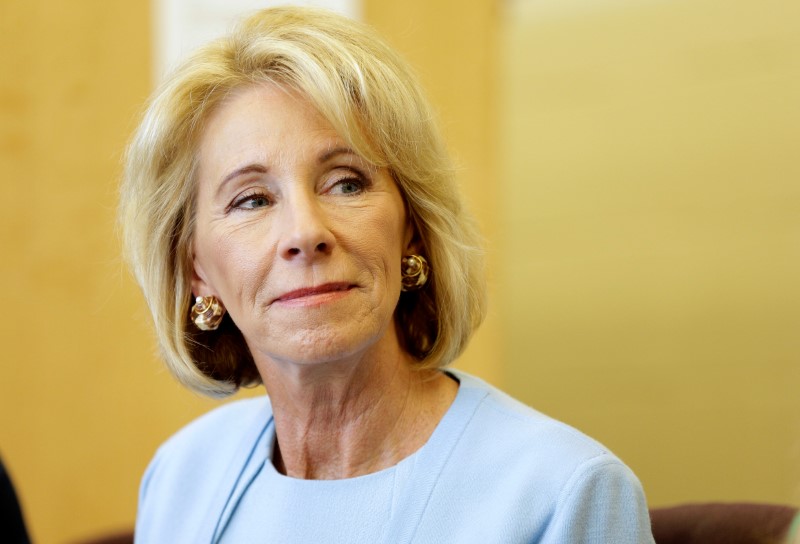Investing.com’s stocks of the week
WASHINGTON (Reuters) - Having Republicans control both the White House and Congress could deliver more federal funds to charter schools and also create competition for dollars from alternative approaches to education, the head of a charter school lobbying group told its members on Monday.
President Donald Trump and Education Secretary Betsy DeVos, both Republicans, suggested in their proposed budget last month to increase federal funding for charter schools, which are public schools that are run independently from local districts, typically by a corporation.
"We have a huge opportunity to score major funding increases for our movement," said National Alliance for Public Charter Schools President Nina Rees at an annual meeting. "But if you don't speak up now, we may never have as good a chance to make a difference for our students."
More than three million children across the country attend charter schools, Rees said.
The budget also proposed increasing money for other "school choice" programs, primarily giving families vouchers to pay private school tuition.
The overall education budget would be cut by $9 billion under the Trump administration's plan, which Congress must still approve.
The two major teacher unions, the National Education Association and the American Federation of Teachers, have said the budget would slash public school funding to free up money for private initiatives.
Democrats have supported charter schools in the past, but now are nervous about associating themselves with Trump policies, Rees said. Republicans have long wanted to pursue ideas different from the traditional state schools.
Rees told the meeting that some Republicans could give charter schools a lower priority than other issues on their legislative agenda.
"All of us need to understand that accepting the president’s support for charter schools doesn't tie us to his whole agenda," Rees said.
Last week, DeVos faced hostile questions from a U.S. Senate committee about her voucher ideas, with her mostly responding that she was only exploring the possibility of a program. Past Republican proposals would provide "vouchers" via tax credits for parents.
Supporters say vouchers could give children in neighborhoods with weak public schools the chance to receive a better education at local private institutions. Critics say vouchers are intended to boost private-sector profits with public money, and that the suggested subsidy amounts are too low to make tuition affordable for the poorest parents.
